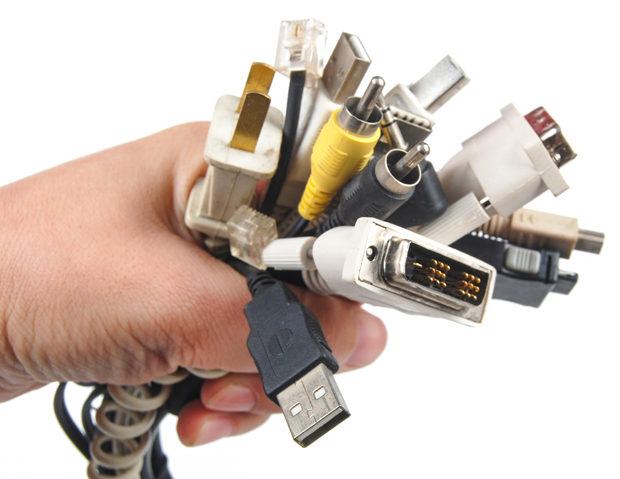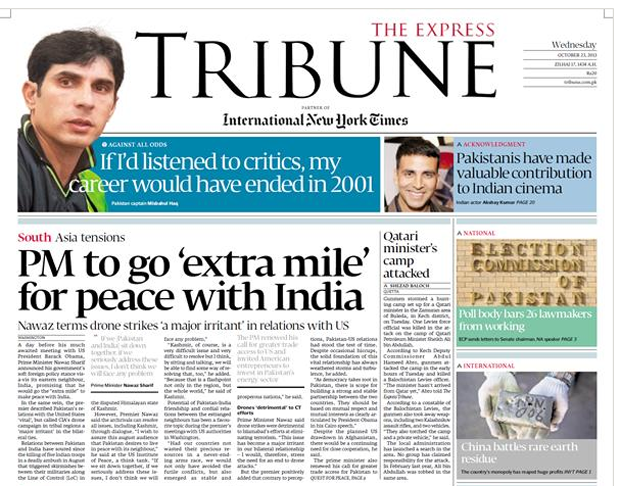4 Nov 2013 | Digital Freedom, News and features

We can partially blame gerrymandering for the current gridlock in the U.S. Congress. By shaping the electoral map to create politically safe spaces, we have generated a fractious body that often clashes rather than collaborates, limiting our chances of resolving the country’s toughest challenges. Unfortunately, revelations about the global reach of American security surveillance programs under the National Security Agency (NSA) are leading some to propose what amounts to gerrymandering for the internet in order to route around NSA spying. This will shackle the internet, inherently change its technical infrastructure, throttle innovation, and likely lead to far more dangerous privacy violations around the globe.
Nations are rightly upset that the communications of their citizens are swept up in the National Security Agency’s pervasive surveillance dragnet. There is no question the United States has overreached and violated human rights in its collection of communications information on innocent people around the globe; however, the solution to this problem should not, and truly cannot, be data localization mandates that restrict data storage and flow.
The calls for greater localization of data are not new, but the recent efforts of Brazil’s President, Dilma Rouseff, to protect Brazilians from NSA spying reflected the view of many countries suddenly faced with a new threat to the privacy of the communications of their citizens. Rouseff has been an advocate for internet freedom, so undoubtedly her proposal is well intentioned, though the potential unintended repercussions are alarming.
First, it’s important to consider the technical reasons why data location requirements are a really bad idea. The Internet developed in a widely organic manner, creating a network that allowed data to flow from all corners of the world – regardless of political boundaries, residing everywhere and nowhere at the same time. This has helped increase the resilience of the internet and it has promoted significant efficiencies in data flow. As is, the network routes around damage, and data can be wherever it best makes sense and take an optimal route for delivery.
Data localization mandates would turn the internet on its head. Instead of a unified internet, we would have a fractured internet that may or may not work seamlessly. We would instead see districts of communications that cater to specific needs and interests – essentially we would see Internet gerrymandering at its finest. Countries and regions would develop localized regulations and rules for the internet to benefit them in theory, and would certainly aim to disadvantage competitors. The potential for serious winners and losers is huge. Certainly the hope for an internet that promotes global equality would be lost.
Data localization may only be a first step. Countries seeking to keep data out of the United States or that want to exert more control over the internet may also mandate restrictions on how data flows and how it is routed. This is not far-fetched. Countries such as Russia, the United Arab Emirates, and China have already proposed this at last year’s World Conference on International Telecommunications.
As internet traffic begins to demand more bandwidth, especially as we witness more real-time multimedia applications, efficient routing is essential to advance new internet services. High capacity applications like Apple’s FaceTime may slow to the painful crawl reminiscent of the dial-up days of the internet.
This only begins to illustrate the challenges internet innovators would face, but big established players like Facebook, Google and Microsoft, would potentially have the resources to abide by localization mandates – of course, only if the business case supports working in particular locales. Some countries with local storage rules may be bypassed altogether. For small or emerging businesses, data localization requirements would be a greater challenge. It would build barriers to markets and shut off channels for innovation. Few emerging businesses could afford to locate servers in every new market, and if local data server requirements become ubiquitous, it will be businesses in emerging markets that are most disadvantaged. The reality for developing nations is that protectionist measures such as data localization will further isolate local business from the global market, depriving them of the advantages for growth that are provided by the borderless internet.
Most important though, is the potential for fundamental harm to human rights due to data localization mandates. We recognize that this is a difficult argument to accept in the wake of the revelations about NSA surveillance, but data localization requirements are a double-edged sword. It is important to remember that human rights and civil liberties groups have long been opposed to data localization requirements because if used inappropriately, such requirements can become powerful tools of control, intimidation and oppression.
When companies were under intense criticism for turning over the data of Chinese activists to China, internet freedom activists were united in theirs calls to keep user data out of the country. When Yahoo! entered the Vietnamese market, it placed its servers out of the country in order to better protect the rights of its Vietnamese users. And the dust up between the governments of the United Arab Emirates, Saudi Arabia, India, and Indonesia, among others, demanding local servers for storage of BlackBerry messages in order to ensure legal accountability and meet national security concerns, was met with widespread condemnation. Now with democratic governments such as Brazil and some in Europe touting data localization as a response to American surveillance revelations, these oppressive regimes have new, albeit inadvertent, allies. While some countries will in fact store, use and protect data responsibly, the validation of data localization will unquestionably lead to many regimes abusing it to silence critics and spy on citizens. Beyond this, data server localization requirements are unlikely to prevent the NSA from accessing the data. U.S. companies and those with a U.S. presence will be compelled to meet NSA orders, and there appear to be NSA access points around the world.
Data localization is a proposed solution that is distracting from the important work needed to improve the Internet’s core infrastructural elements to make it more secure, resilient and accessible to all. This work includes expanding the number of routes, such as more undersea cables and fiber runs, and exchange points, so that much more of the world has convenient and fast Internet access. If less data is routed through the U.S., let it be for the right reason: that it makes the Internet stronger and more accessible for people worldwide. We also need to work to develop better Internet standards that provide usable privacy and security by default, and encourage broad adoption.
Protecting privacy rights in an era of transborder surveillance won’t be solved by ring fencing the Internet. It requires countries, including the U.S., to commit to the exceedingly tough work of coming to the negotiating table to work out agreements that set standards on surveillance practices and provide protections for the rights of privacy and free expression for people. Germany and France have just called for just such an agreement with the U.S. This is the right way forward.
In the U.S., we must reform our surveillance laws, adopt a warrant requirement for stored email and other digital data, and implement a consumer privacy law. The standards for government access to online data in all countries must likewise be raised. These measures are of course much more difficult in the short run that than data localization requirements, but they are forward-looking, long-term solutions that can advance a free and open internet that benefits us all.
Joseph Lorenzo Hall, Chief Technologist at Center for Democracy and Technology, co-authored this piece with Leslie Harris.
This article was originally posted on 4 Nov 2013 at indexoncensorship.org
23 Oct 2013 | News and features, Pakistan, Religion and Culture

It’s been over two weeks now that Rana Tanveer, a reporter in Lahore at the English daily, Express Tribune, has not gone to work.
Early this month, he received a one-page letter, in the Urdu language, terming him an apostate and accusing him of writing in favour of Ahmadis and Christians.
“It warned me to stop writing ‘against’ Islam and seek ‘forgiveness’ from God,” he said over the phone from his home in the Punjab province.
It further warned him that if he did not desist, he would be killed — since that is the punishment of a person declared an apostate.
“I can’t work like this; no reporter can, if he cannot roam about freely,” said Tanveer.
Initially, he did not take the letter too seriously, but a week after he received the letter, he felt he was being followed on a motorbike. “It’s a scary experience,” he conceded, adding: “I made a few turns just to be sure that this was not a figment of my imagination, but the man on the motorbike persisted. I knew then that this was no joke and I had to do something.”
His seniors at work advised him to at least file a complaint with the police, which he did, but he did not name anyone “due to security reasons”.
“My editor told me to keep a low profile and not to report on minority issues for a while, and if I had to, it would go without by byline,” said the journalist.
Farahnaz Zahidi, features editor in the same paper as Tanveer’s feels very strongly about one’s byline being taken away. “As a journalist, perhaps the biggest satisfaction in this otherwise perilous and often under-paid profession is one’s by-line; it also lends credibility.”
However, she added, by shooting the messenger, society loses out. “The right to information is threatened when media persons threatened.”
Tanveer finds a plethora of minority rights abuses strewn around his city but says few journalists feel inclined to take up these issues.
“Mine seems to be a lone battle,” he said. “I am often scorned by my colleagues for reporting ‘chooras’ (derogatory term used for Christians, also among the poorest sections of society and consigned to menial janitorial jobs) and ‘Qadianis’ (also a derogatory name for those belonging to the Ahmadi faith, declared non-Muslims by state in 1974),” he said.
But it’s not indifference to these rights issue alone that keeps journalists from reporting on them. Senior journalist and communication expert, Babar Ayaz, says it is also quite dangerous to write about “the victimisation of Ahmadis, Christians or Hindus”.
Nevertheless, he added: “Journalists have to write what is right. Threats and killings are hazards of this job living in an increasingly intolerant society.”
He remembered when he wrote a piece on the attack on the massacre of Ahmadis in Lahore [in May 2010], he received a couple “abusive phone calls”. He also received some angry messages on a chapter in his book titled: What’s Wrong With Pakistan? The book, which was published in August criticises Islamic laws in Pakistan.
“But we are small fry,” said Ayaz. “When Nawaz Sharif expressed condolence on the killings of ‘our Ahmadis bhais [brothers]’ some mullahs said that by calling them ‘bhai’ he had committed a sin. The extremists have no logic but they have muscle power,” he added.
According to Aamer Mahmood, who heads the press section of the Ahmadiyya Jammat, and is in regular touch with several journalists: “The fear among them is palpable. While many empathise with us for the way our rights are trampled, they say their hands are tied. Some are scared of the wrath of the extremists; others fear they will lose their jobs.”
“It is indeed becoming more dangerous to write on these issues, in any language,” agreed Kamila Hyat, a rights activist and former editor of English daily The News. “I believe that while sections of the English language press remain relatively liberal, more and more are succumbing to the bias and intolerance we see everywhere,” she pointed out.
“The manner in which the ‘agenda’ for news is set, notably by the electronic media, also shoves minority issues to the sidelines, and intolerant mindsets exist everywhere — even among the educated,” she said.
With seven journalists having lost their lives since January this year, according to the 2013 Impunity Index report by the Committee to Protect Journalists (CJP), just last year, Pakistan which was ranked tenth, has moved two spots up at eighth position for the worst place for the press. Further, it has been declared more dangerous than Russia, Brazil, Nigeria and India.
According to the CJP, 28 Pakistani journalists have been murdered since 1992 in connection with their work, 27 of whom were killed with impunity. The deaths of 24 additional killed during the same period cannot be confirmed as “targeted.”
“Doing journalism in Pakistan is not easy, which is ranked the third most dangerous country for reporting after Syria and Egypt,” observes Mazhar Abbas, former secretary general of the Pakistan Federal Union of Journalists, a formidable voice fighting for the rights of journalists. While journalists continue reporting despite threats particularly those working in the Federally Administered Tribal Area (FATA), Balochistan and even in the southern port city of Karachi, Abbas said, reporters from the Punjab province seemed comparatively safer.
But not anymore, it seems.
Abbas said every threat should be taken seriously. “The letter to Tanveer could be an individual act or from a group. The government and administration need to probe this matter and find out about the person who sent this letter in the first place. Journalists reporting on sensitive issues should do so responsibly; their reports should be factually correct with minimum expression that can lead to stoking up controversy.”
This article was originally posted on 23 Oct 2013 at indexoncensorship.org
18 Oct 2013 | Bulgaria, Digital Freedom, Germany, News and features, United States
 On 30 September, Bulgarian-German author Ilija Trojanow was travelling from Brazil to the US for a conference on German literature. That was his plan, anyway. At the airport in Salvador da Bahia, he was told his entry to the US had been denied. No explanation was provided then, and none has been provided since.
On 30 September, Bulgarian-German author Ilija Trojanow was travelling from Brazil to the US for a conference on German literature. That was his plan, anyway. At the airport in Salvador da Bahia, he was told his entry to the US had been denied. No explanation was provided then, and none has been provided since.
Trojanow is one of the main forces behind a 74,000 strong and growing petition against mass surveillance. Initiated and signed by some Germany’s biggest writers, the petition argues the government is bound by the constitution to protect its citizens against foreign spying.
His experience in Brazil exploded in the German media, but Trojanow seems more bemused than anything else.
“It wasn’t bad enough that governments are spying on everybody!” he says with a laugh. “What this shows is that general attacks on everybody and not individual victims, are too abstract. An individual case, even if it’s a minor one, can get more attention.”
While the incident did create more discussion around mass surveillance and caused a spike in the number of signatures, there is no doubt the petition already had widespread support. The issue of mass surveillance seems to have struck a particular chord in Germany. Trojanow believes this is due to their history.
“East Germany more than any other country in the former Soviet block has discussed its secret service files. It has been a dominant issue in the media. The archives are easy to access. Germans know how horrendous it is when the secret service is not under real control.”
He also thinks the famous German efficiency shines through even in this case. Many felt that something needed to be done about the mass surveillance, and when Germans set out to do something, they do it properly.
“It is quite ironic,” he adds: “Germans had democracy beaten into them. They were educated in democracy by the US and the UK. It seems they were good students!”
Trojanov himself has long been interested in the issue of state surveillance, with his 2009 book “Freedom Under Attack”, for instance, becoming a bestseller in Germany. For him, the issue carries a more personal dimension. Growing up in a Bulgaria, parts of his family were engaged in the struggle against the communist authorities.
“I am in the situation now where I am able to read transcripts of what adults in my family were saying, as our apartment was bugged.”
“What you realise is that when you have the attention of the secret service pointed at you, whatever you do is in some way proof of guilt. Even completely innocent things become potentially implicating.”
The petition was formally presented to the German government on 18 September, back when when it had 63,000 signatures. A month and ten thousand additional names later, they have still have yet to receive any sort of official reply. Still open, Trojanow and his compatriots now plan to take it global. As he says, mass surveillance is a worldwide challenge and cannot be tackled simply by and within one nation.
“I don’t understand why we wait until situation is completely unbearable. You start safeguarding your freedoms when they are attacked on the edges.”
This article was originally posted on 18 Oct 2013 at indexoncensorship.org
25 Sep 2013 | News and features

(Photo: David von Blohn / Demotix)
This article was originally published at Indy Voices
What’s happened to Edward Snowden and his revelations about the National Security Agency’s surveillance programme? As stories keep emerging from one of the largest leaks in US history, we learn more and more about the Americans’ ability to monitor communications, but seem less sure how to respond. Most people would acknowledge that the state does retain some right to monitor suspect activities. But this is a very different proposition from the population-wide mass surveillance suggested by the documents leaked by Snowden. Clearly the balance has tipped much too far in favour of default data gathering. So how do we move it back?
This is a complex discussion, and it’s not really being had in the UK right now. The Guardian’s Simon Jenkins has suggested an establishment conspiracy has kept the public from talking about this – it’s certainly true that the response here has not been on the level of that in other countries (not least in Brazil, where a national Internet redesign to avoid US surveillance is being considered).
But part of the problem here is not simply that people have been shielded from the discussion on surveillance, or that people don’t care. It is that people do not know what we are supposed to do about this. Who do we appeal to? What do we want?
This is where the European Union can come into its own. An Englishman’s home may be his castle, but nowhere is protection of privacy given more credence than in Brussels and Berlin. A horror of Soviet-style surveillance of citizens runs deep in many European institutions and nation states, particularly those that had hands-on experience. The most powerful person in Europe, Angela Merkel, remember, was a citizen of Stasiland.
The European Parliament’s Civil Liberties, Justice and Home Affairs Committee (Libe), has set out to investigate claims of surveillance and examine what the EU can do about it. UK Labour MEP Claude Moraes has been charged with reporting on the Committee’s findings by the end of the year.
The parliament will be considerably aided by a 36-page briefing by independent surveillance researcher Caspar Bowden, who was helpfully mapped out the history of US and UK surveillance, and overlap with the European Union, all the way back to Alan Turing’s work with US spies in 1942.
Bowden comes up with several recommendations for Europe: the development of a “European cloud”, the revoking or renegotiation of mechanisms that allow US companies to gather data from European users, and, significantly in the case of the Snowden revelations, “systematic protection and incentives for whistleblowers”.
The European parliament investigation is welcome. But in reality, there is only a certain amount the parliament can actually achieve. The real power will, in the end, rest in the will of the governments of the respective European Union countries to act. Europe’s cyber strategy already states that “increased global connectivity should not be accompanied by censorship or mass surveillance”. But it’s time EU leaders acted on this.
That’s why Index on Censorship, along with dozens of other groups, including Amnesty, Reporters Without Borders and the Electronic Frontier Foundation, as well as stars and activists such as Bianca Jagger, Stephen Fry and Cory Doctorow, is petitioning European leaders directly. The next European Council Summit takes place at the end of October. We want every European government head there to publicly take a stand against mass surveillance.
The European Union, founded in part as a democratic bulwark against the authoritarianism of the eastern bloc, has a chance to stand out in the world against surveillance and for the rights of free speech and privacy. In the coming decades, power will be defined by who controls information: Europe, as a powerful democratic force, should work to ensure that its own ordinary citizens and people around the world are not left impotent.
Sign the petition telling EU leaders to stop mass surveillance here



 On 30 September, Bulgarian-German author
On 30 September, Bulgarian-German author 